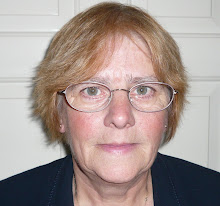EASIE stands for 'Exercise and Sound in Education'. It is backed by research funded by the General Teaching Council , Wales. By addressing child development in a fun, but structured way it enhances learning . It can be used by a whole class, from nursery up and with individuals with special needs who are older. Developmental progress can be tracked and seen to mirror improvements in the educational sphere. The earlier you intervene , the less input is needed and the sooner children benefit.
This programme addresses the needs of all the children. There will be those who need the course repeated to address the more severe difficulties and it will pin point difficulties in any specific area. I think it is very important to include all the children. Those with additional needs are easily recognisable as they progress up through the education system but without this, a good number of children of above average intelligence will be missed. They are bright enough to find compensatory strategies to achieve an end and so will not get flagged up as having a difficulty. However as they move up, these compensations sap them, such that although they may achieve an average grade, they fall short of their potential.
It is essential that these children are recognised. They are as important as those with a specific difficulty or label. We need to look at the brighter children. How many of them cannot hold a pencil correctly, are almost flat on the desk when writing a longer piece, are too close to the paper when reading, cannot follow or need repetition of instructions? These are just a few indicators. It may be thought that they never listen and cannot follow instructions. If the teacher is not boring the whole class, which is rare, can they tell the difference between sounds and so understand the spoken word correctly, first time and without effort?
I have tutored children for secondary entrance exams for over 20 years and have been into developmental work in a big way for the last 15. The child affected by developmental delay used to be rare but in the last few years it has been seen to affect more than a quarter of these students of above average potential. Only one in four of the total number can hold a pencil correctly. About half are slumped over the desk when writing and about the same number are far too close to the text when reading. The result for a lot is they are unable to work fast enough because of the problems, to achieve their end.
By bringing in a developmental programme for use with all the children a lot of these problems could be corrected before they even start on formal education. We have put money into education to address individual needs for those not succeeding, we have trained up excellent teachers and now we have to look at the child as a learner. The child is the one who does the learning and it would be better if they were developmentally ready to take on the task. We are failing those children of above average ability who will be earning the money for the country in the future and, the scheme to help them would also benefit the children with more severe needs.
If every child matters then we need to consider every child and a programme which addresses the needs of all, can be used across the board to do this. Makes sound economic sense.
These children have no voice or specific group to speak out for them but, it is vital to those with severe difficulties, that they get help. Some with severe difficulties will need support throughout their life and it is this neglected group who will have to provide the money for that long term support.
It may be thought that I am championing this group without thought or understanding of those with more severe difficulties but this is not the case. I am at present working on a study to show the benefits of a listening programme with those on the autistic spectrum and produced a published study on Down Syndrome with a colleague. I have shown in study, how programmes can help children underachieving with a variety of labels (warwick 2004). All children should have the best. No group is more worthy than another.
Thursday, 20 January 2011
Subscribe to:
Post Comments (Atom)

No comments:
Post a Comment